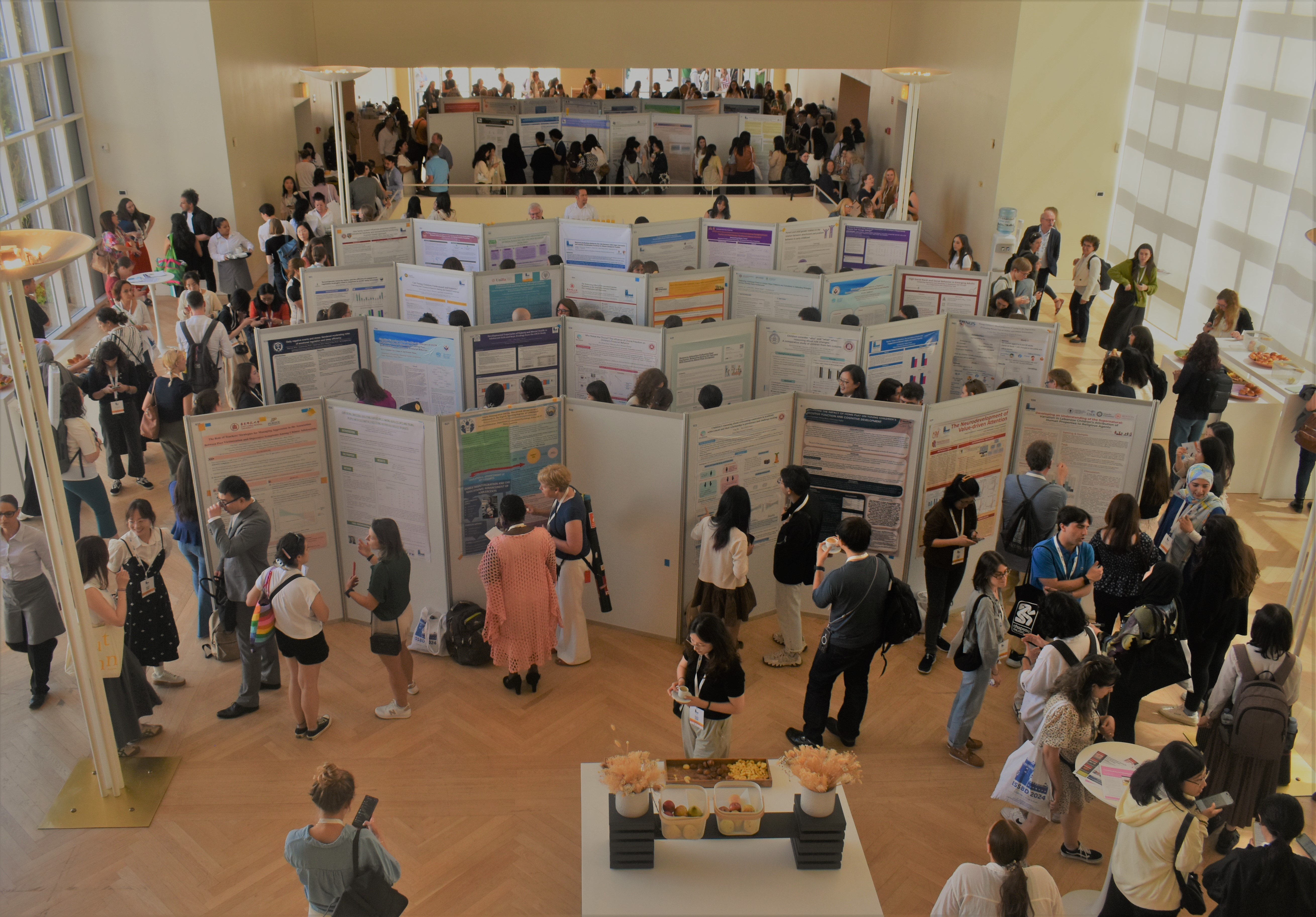Early Career Scholars Advisership Program
The Early Career Scholars Advisership Program is designed to connect emerging researchers with experienced advisors in the field of human development. Through this initiative, ISSBD offers personalized guidance, networking opportunities, and professional development support to scholars in the early stages of their academic careers.
Selected eligible scholars will be matched with senior professionals from the ISSBD community for a one-on-one advisory relationship over a six-month period. Scholars should bring specific short-term projects to the program, such as preparing a manuscript for publication, applying for a research grant, or developing a professional plan. The type of support scholars will receive will vary depending on their needs and the advisor’s area of expertise.
This program provides a unique opportunity for scholars to refine their skills and advance their academic careers within the ISSBD community, with a focus on collaboration and knowledge exchange.

Program Description
The process will be organized around a specific goal or a project: a manuscript to submit, a study to design, a statistical analysis, etc.
The advisor and advisee will meet for an introduction and goal-setting meeting, which will also be used to check compatibility. The scholar’s project will be evaluated during the initial meeting, and subsequent exchanges will be organized according to the timeline and requirements for its completion.
The advisor and advisee will engage in a maximum of 4 exchanges within a span of 6 months. The exchanges can take the form of a meeting or a draft exchange with comments.
Eligibility Criteria
- Be an ISSBD member.
- Be a Master’s or PhD student or within seven years post-PhD.
Types of Support
- Methodological guidance
- Statistical support
- Writing assistance
- Theoretical input
- Publishing
- Grant writing
- Career advice

Thank you to everyone who applied!
Want to learn more about ECS initiatives and resources? Check out the information below or visit the ECS Committee page.
Application process
- Scholars will be asked to select two preferred mentors (first and second choice) in their submission.
- Applications will be grouped by mentor and ranked by submission time and stated preference.
- The first scholars on the lists will be contacted to arrange the initial meeting with the selected mentor.
- Scholars whose chosen advisors have already been assigned will be placed on a waitlist.
- Once paired, advisors and advisees will hold an initial online meeting to assess compatibility and define a support plan.
Other considerations
Advisors are not automatically co-authors on publications, unless the advisorship evolves into a collaboration beyond the scope of the program.
Advisees formally supervised at their institution must present an endorsement letter from their supervisor. You can download a template here:
The advisor provides a second opinion and does not replace your institutional supervision.
At the end of the program, advisees will submit a report or present their experience/output at an ISSBD-determined event.
Advisors
Research areas: Social Cognition, Theory of Mind, Moral development, Human-Robot Interaction, neurofunctional bases of human development, digital learning.
Research experience: With psychological and neuroscientific backgrounds, her main research interest is in developmental psychology, particularly focusing on social cognition, Theory of Mind, and decision-making processes between humans and in human-robot interaction in a life-span perspective. For more info and publications, visit http://docenti.unicatt.it/ita/cinzia_di_dio/
Type of support: Methodological guidance, Writing assistance, Theoretical input, Publishing.
Research areas: Social Cognition, Theory of Mind, Moral Development, Human-Robot Interaction, Autism and Neurodiversity.
Research experience: Dr. Federico Manzi is a tenure-track researcher in Developmental and Educational Psychology at Università Cattolica del Sacro Cuore in Milan, where he also serves as Co-Coordinator of the Research Unit on Psychology and Robotics across the Lifespan. He is a developmental psychologist whose research explores the intersection of social cognition, moral development, and human-robot interaction across cultural contexts and life stages. He is a member of the Research Center on Theory of Mind and Social Competences across the Lifespan and has conducted research in Japan, the United Kingdom, and Switzerland. He is currently a Research Fellow of the Japan Society for the Promotion of Science at the Intelligent Robotics Laboratory of Osaka University, directed by Professor Hiroshi Ishiguro. His work examines how Theory of Mind—the ability to attribute mental states to oneself and others—develops across the lifespan and how it can be modeled and tested in artificial systems. His interdisciplinary research includes cognitive modeling in robotics, the understanding of intentionality, sociomateriality, and developmental conditions such as autism. His current projects focus on the ethical and psychological implications of trust, agency, and decision-making in human interactions with intelligent machines. More info
Type of support: Methodological guidance, Theoretical input, Publishing.
Research areas: Moral Development, Value Development, Cross-Cultural Psychology, Longitudinal Researchsm and Neurodiversity.
Research experience: Prof. Ella Daniel is an Associate Professor at the Department of School Counseling and Special Education, Tel Aviv University. She is an expert in value development across the life-span. She examines changes in the importance, structure, and understanding of values. She also looks at precursors of value development and the role of cognition and morality in predicting value importance. She is especially interested in the role of the social environment in promoting positive values; here, she considers the contributions of the family, social media, large language models, the culture, and the school. Finally, she investigates the development of moral behavior and especially prosocial behavior, moral understanding and moral emotions. Prof. Daniel applies a large variety of research designs and methods. She is an expert in longitudinal designs and modeling of time and change. She is also applying artificial intelligence and natural language processing for the detection of values in video and text. Dr. Daniel published papers in multiple developmental and personality (social) leading outlets, such as Child Development, European Journal of Personality, etc. She leads large research projects, funded by the European Research Council, the Israeli Science Foundation, and Google More info
Type of support: Methodological guidance, Statistical support, Writing assistance, Theoretical input, Publishing, Grant writing, Career advice.
Research areas: Cross-Cultural Psychology, Longitudinal Research, Parenting.
Research experience: Dr. Jennifer E. Lansford is the S. Malcolm Gillis Distinguished Research Professor of Public Policy and Director of the Center for Child and Family Policy at Duke University. She is a developmental psychologist whose international research focuses on how culture and family-level factors interact to influence human development. Her research informs scientific understanding of the etiology of health-compromising and risky behaviors from childhood to adulthood and is used to promote child wellbeing worldwide. Dr. Lansford leads the Parenting Across Cultures Project, a longitudinal study of children, mothers, and fathers from nine countries (China, Colombia, Italy, Jordan, Kenya, Philippines, Sweden, Thailand, and the United States). She has consulted for UNICEF on the evaluation of parenting programs in several countries and on the development of a set of international standards for parenting programs. She is currently Editor of the International Journal of Behavioral Development.
Type of support: Methodological guidance, Writing assistance, Theoretical input, Publishing.
Research areas: Teaching, Inclusive Education.
Research experience: My research experience and interests are primarily empirical, with most of my work empirical, alongside some conceptual and theoretical contributions, specifically focussing on inclusive education. Below, are some publications: Tchombe M.,S., T (2019)Changing Trends in the Provision of Psychosocial and Health Resources for Quality Childhood Development in Cameroon, In Eloff, I( Ed). International Handbook of the Quality of Life in African Societies, pp.221-237 Book Series (IHQL), Springer Series Switzerland. ISBN978 3-03 15366-3 Tchombe, M.,.S.,T., Wirdze,L., Muki, A.,N., (2018). Enhancing the Health and Education of Deprived Children: Implications for Sustainable Development in Cameroon, In Verma, S & Petersen, A., C., Developmental Science and Sustainable Development Goals for Child and Youth, Social Indicators Research Series, Springer Chapter 7 pp137-154 Tchombe M.T. (2017). Epistemologies of Inclusive Education and Critical Reflexivity for Pedagogic Practices in Primary Years (4-11), In Phasha, N., Mahlo, D. Sefe Dei, G.,J. Eds. Inclusive Education in Africa, A Critical Reader: Anti- Colonial Education Perspective for Transformative Change. Vol 5: Rotterdam, Boston, Taipai, Sense
Type of support: Methodological guidance, Writing assistance, Theoretical input.
Research areas: Developmental Psychopathology, Shyness and Solitude, Cross-Cultural Psychology.
Research experience: My general research interests are in the area of child and adolescent socio-emotional development and developmental psychopathology. In particular, my research has focused on the conceptualization, assessment, and implications of shyness, social withdrawal, and social anxiety. I have also more broadly explored the costs and benefits of solitude across the lifespan and across cultures.
Type of support: Methodological guidance, Writing assistance, Theoretical input, Publishing.
Research areas: Identity Development, Longitudinal Research.
Research experience: Research experience: My research focuses on understanding developmental changes in youth’s relationships with parents, siblings, friends, and intimate partners, and how these developmental changes are associated with development of identity, autonomy and psychosocial functioning. I adapt an ecological systems model approach by including factors at the individual, interactional, relational, contextual and societal levels. I use a combination of designs, including long-term longitudinal multi-method and multi-informant research projects, as well as observational studies and qualitative interview studies. I am interested in understanding dyadic processes, not only how relationships affect adolescent behaviour over time, but also how relational partners adapt to adolescent’s behaviour and what role adolescents’ individual characteristics play in this process. I am also interested in understanding development across life transitions (to secondary or tertiary education, living independently, partner relationships, work, parenthood), and examining the short-term within-person interaction processes underlying long-term developmental changes in relationships and psychosocial functioning.
Type of support: Methodological guidance, Theoretical input.
Research areas: Developmental psychology, Interventions, Environment, Behavioural changes in the life span.
Research experience: My interest is how human beings acquire and change behavior across the life span, and I believe environmental factors heavily shape developmental outcomes. Interventions aimed at improving the human condition needs to target individual environments and experiences. My current research projects are on child character development in selected areas of Kenya, Ethiopia and Cameroon. My team and i explore how children acquire positive character traits and how this helps them face the ravages of climate change and other adverse events.
Type of support: Methodological guidance, Theoretical input, Grant writing.
Interested in Joining?
We welcome applications from those interested in participating in this mentorship program. Click here to submit your application.
You can also learn more about the Early Career Scholars Committee and its activities here.
Note: You must be logged in to our membership site to view and complete the application form.
For any questions, feel free to reach out to Prof. Cinzia Di Dio at cinzia.didio@unicatt.it or Karen Castillo at k.castillo@issbd.org.